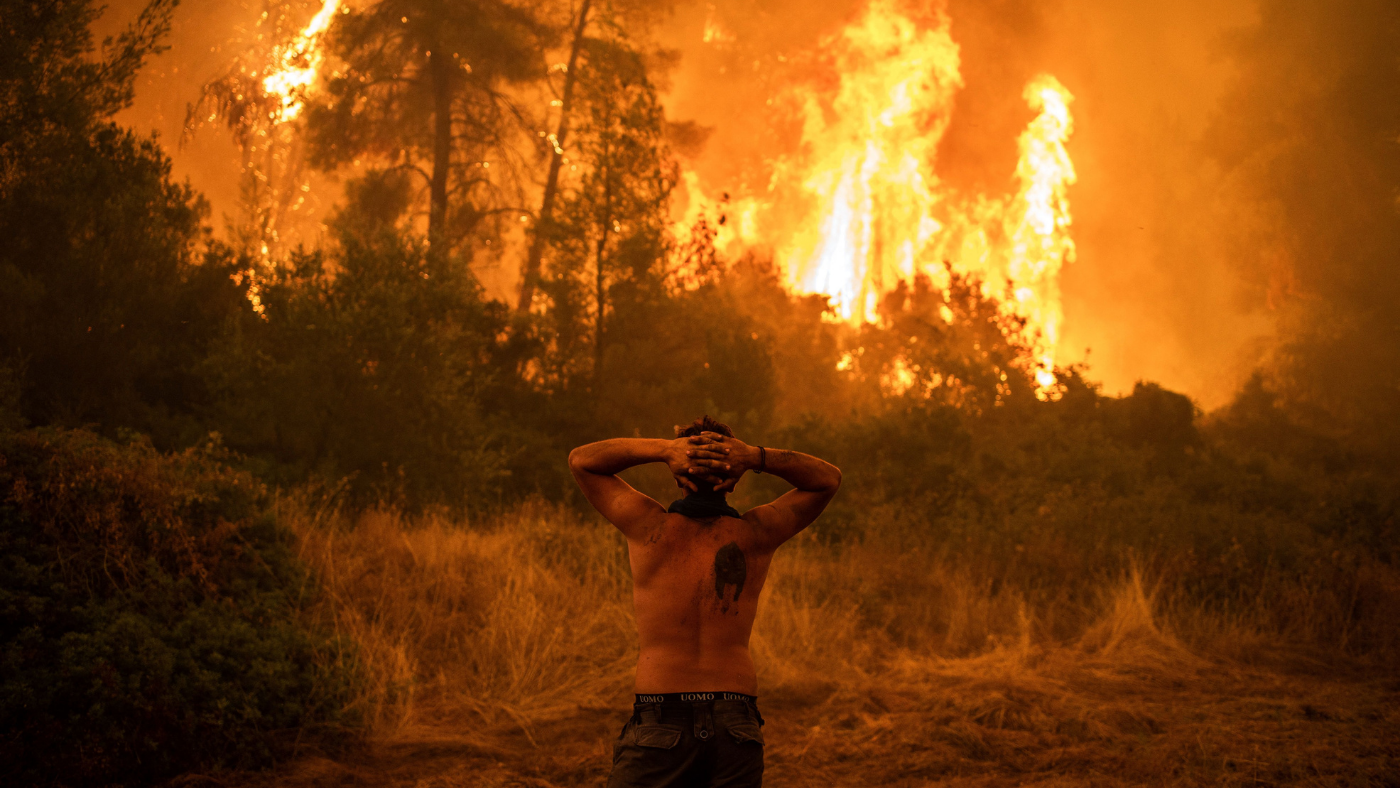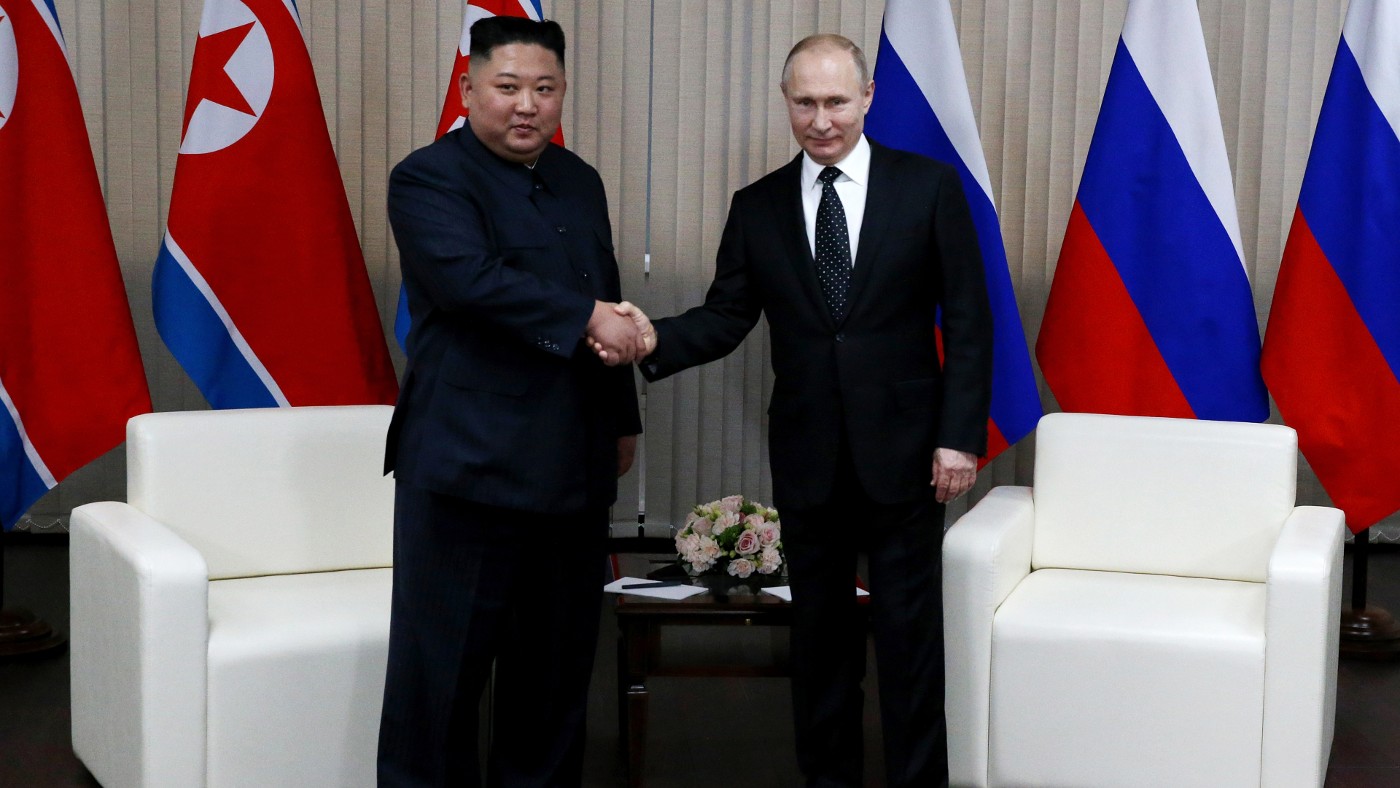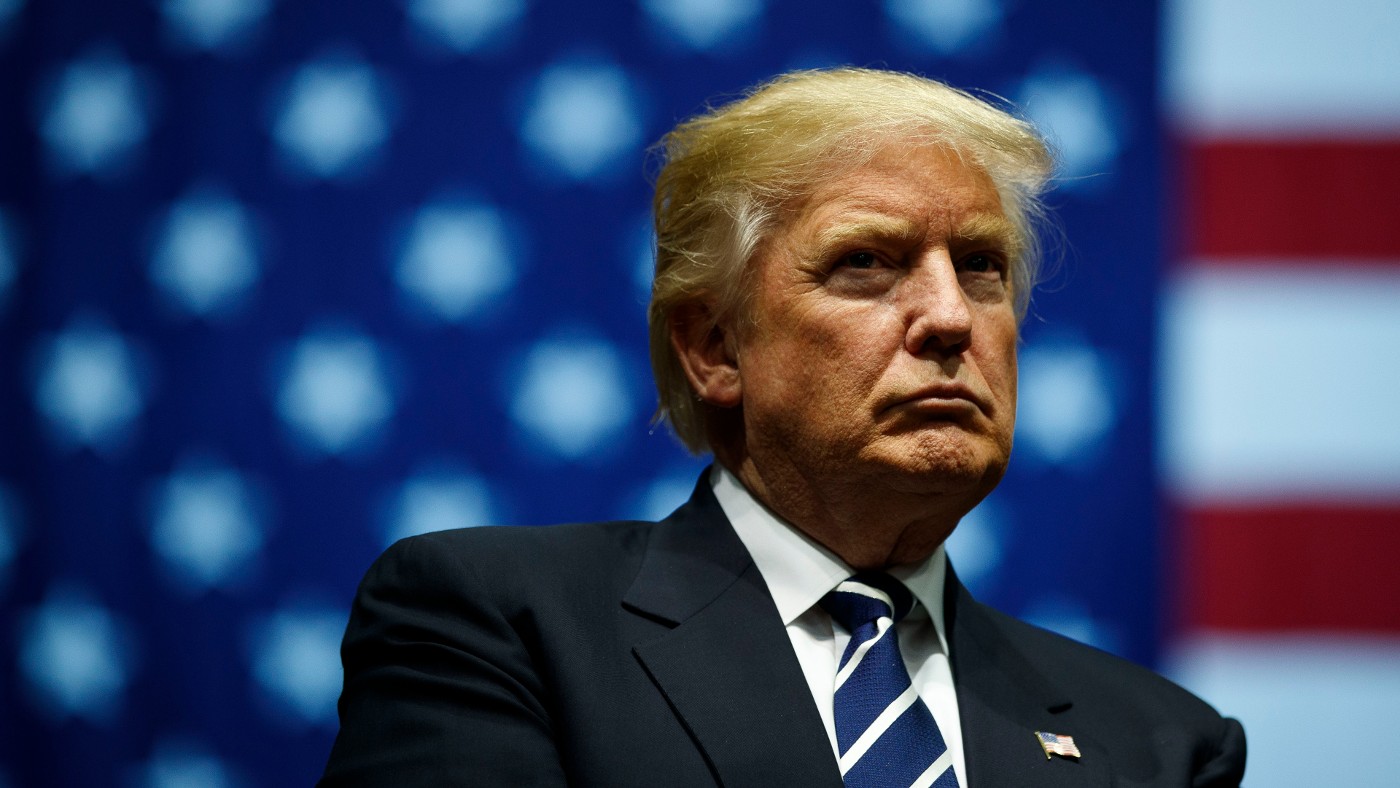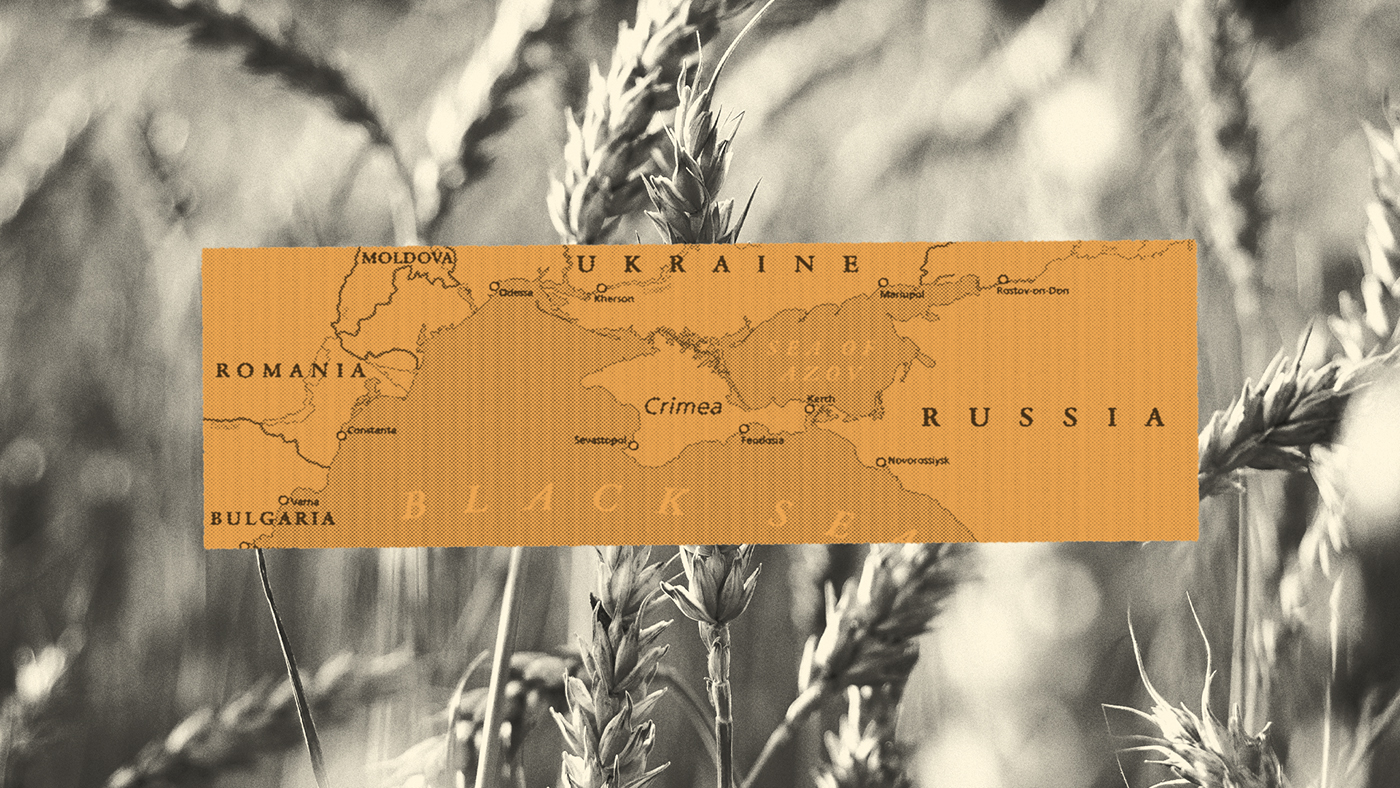‘We need immediate action on climate change’
Your digest of analysis from the British and international press

- 1. We can still hold the line on climate change impacts
- 2. Muslims still bear the stigma of the ‘Trojan horse’ scandal. Maybe that’s what was intended
- 3. Stop letting petty past convictions ruin lives
- 4. Britain’s silence is deafening – this is how we help the people of Ukraine
- 5. Donald Trump’s accounts may hold him to account
A free daily email with the biggest news stories of the day – and the best features from TheWeek.com
You are now subscribed
Your newsletter sign-up was successful
1. We can still hold the line on climate change impacts
Stephen Cornelius at Thomson Reuters Foundation
On a ‘clarion call’
Today, the Intergovernmental Panel on Climate Change (IPCC) has set out “the most up-to-date science we have” on what a “warmer world” means for the planet, writes the WWF’s chief adviser on climate change, Stephen Cornelius, for the Thomson Reuters Foundation. One thing is for sure, he says: “the news will not be good. But in this pivotal decade, change can still be made.” The effects of rising global temperatures “are fast being felt in developed countries”, and policymakers “must take away from this latest intelligence” that things can be done to “reduce the vulnerability of natural ecosystems and the infrastructure on which human societies rely. But we must implement these immediately.” Doing so will require “considerable uplift in political will, coupled with stronger collective international action”. The IPCC’s latest report will “no doubt make for some further negative headlines about the state of the planet”. But WWF hopes it will “serve as a clarion call for ourselves and policymakers” to “do all we can to prepare for what’s in store”.
The Week
Escape your echo chamber. Get the facts behind the news, plus analysis from multiple perspectives.

Sign up for The Week's Free Newsletters
From our morning news briefing to a weekly Good News Newsletter, get the best of The Week delivered directly to your inbox.
From our morning news briefing to a weekly Good News Newsletter, get the best of The Week delivered directly to your inbox.
2. Muslims still bear the stigma of the ‘Trojan horse’ scandal. Maybe that’s what was intended
Nesrine Malik at The Guardian
On Islamophobia
Nesrine Malik wonders how many people, in a poll of a few hundred, would know that the so-called “Trojan horse” letter “was found, early on, to be bogus. I fear that it would be a pitiful number,” she writes at The Guardian. And she’s “also pretty certain” that if you told those people that its central claim that there was an organised plot to take over UK schools and run them under strict Islamic principles “was debunked, they would still think: well there’s no smoke without fire”. A new podcast from The New York Times focusing on the scandal has gained “huge popularity”, but “it will still make little difference where it counts”, says Malik. Though the events of the scandal are historic, “our society is, if anything, even more receptive to disinformation about the villainy of Muslims” today. “These lies stick, and they work,” she writes. “Surely the most malevolent force was a government that lied, mainstreamed a conspiracy theory that it knew to be false” and “based legislation on it”.
A free daily email with the biggest news stories of the day – and the best features from TheWeek.com
3. Stop letting petty past convictions ruin lives
Libby Purves at The Times
On letting records lie
“For those without one, it is easy to assume that criminal records wear out quite fast and vanish,” writes Libby Purves at The Times. Think of “actors, rappers and entrepreneurs on both sides of the Atlantic” who “will safely admit, alongside their achievements, to some long-ago arrest caution, community service or shortish prison sentence”. These are “the lucky ones”, and the reality for many “is more complicated and tougher”. For many ex-culprits, “disclosure of their past means a long, painful tale of failure and frustration”. And with the Policing, Crime, Sentencing and Courts Bill “heading towards its final stages”, “some 16,000 more people may suffer from some changes to the cautions system, the devil being in the detail”. They must be “carefully drawn in the approaching bill”, and “parliament should give deep and detailed thought to which minor offences really merit listing on enhanced checks”, says Purves. “Youth is a troubled time. People grow up.”
4. Britain’s silence is deafening – this is how we help the people of Ukraine
Alf Dubs at The Independent
On a necessary response
The UN High Commissioner for Refugees anticipates there could be as many as five million Ukrainians seeking safety from the Russian invasion. “Behind these statistics are the dreadful pictures we are seeing on television and social media, people escaping war with their belongings in suitcases,” writes Alf Dubs at The Independent. “And all this so soon after the Taliban takeover and the flight of thousands of Afghans.” The refugee campaigner says the UK “must act jointly with other European countries and share responsibility”. This includes providing “emergency accommodation, food and medical supplies”, as well as opportunities for Ukrainians “to resettle in this country”. After welcoming those with family in the UK, “we should look sympathetically at those who have other links to this country”, while also taking “our share of responsibility” for those without family here. Ireland and Portugal have already been vocal in offering to accept refugees. “So far, the British response has been a deafening silence.” The UK can’t “publicly say we’re doing everything we can to help Ukraine but then turn our backs on those fleeing”.
5. Donald Trump’s accounts may hold him to account
The Financial Times View
On legal pressure
“Donald Trump must be feeling more than usually unassaiable,” says the Financial Times’s Editorial Board. The former US president “saw off two impeachments and a special counsel investigation into Russia links. Now, the chances of him facing a jury in his home town over alleged financial chicanery look decidedly slimmer.” Even so, Trump’s “legal woes are far from over”. A “parallel civil case” is under way, targeting Trump, three of his children, and the family’s property group. “True, the stakes of the civil probe are far lower than those of a criminal investigation”, but it’s “still problematic for Trump since a finding of fraud could stymie his ability to refinance sizeable loans that are becoming due”. And further afield, a criminal investigation into claims that he leaned on a local official in Georgia “is gaining momentum”. That case “speaks to the potential abuse of presidential power that any jury could understand”.
-
 How the FCC’s ‘equal time’ rule works
How the FCC’s ‘equal time’ rule worksIn the Spotlight The law is at the heart of the Colbert-CBS conflict
-
 What is the endgame in the DHS shutdown?
What is the endgame in the DHS shutdown?Today’s Big Question Democrats want to rein in ICE’s immigration crackdown
-
 ‘Poor time management isn’t just an inconvenience’
‘Poor time management isn’t just an inconvenience’Instant Opinion Opinion, comment and editorials of the day
-
 Woman accidentally puts nan in washing machine
Woman accidentally puts nan in washing machineTall Tales And other stories from the stranger side of life
-
 Flies attack Donald Trump
Flies attack Donald TrumpTall Tales And other stories from the stranger side of life
-
 Luton Airport bendy buses join Ukraine war effort
Luton Airport bendy buses join Ukraine war effortfeature And other stories from the stranger side of life
-
 Would North Korean weapons tilt the war Russia’s way?
Would North Korean weapons tilt the war Russia’s way?Today's Big Question Putin wants to boost ‘depleted stocks’ but Pyongyang’s arms may be in poor condition
-
 Bangladesh dealing with worst dengue fever outbreak on record
Bangladesh dealing with worst dengue fever outbreak on recordSpeed Read
-
 Glacial outburst flooding in Juneau destroys homes
Glacial outburst flooding in Juneau destroys homesSpeed Read
-
 Donald Trump criminal charges for 6 January could strain 2024 candidacy
Donald Trump criminal charges for 6 January could strain 2024 candidacySpeed Read Former president’s ‘pettifoggery’ won’t work well at trial, said analyst
-
 Can the Ukraine-Russia Black Sea grain deal be rescued?
Can the Ukraine-Russia Black Sea grain deal be rescued?Today's Big Question The Kremlin’s termination of agreement has sparked fears among food-insecure countries